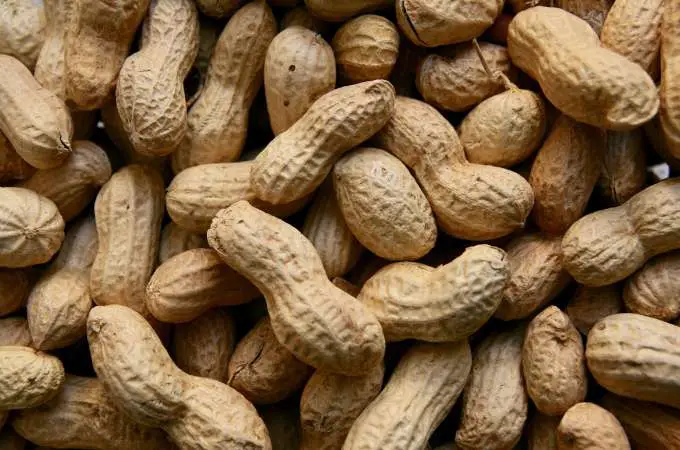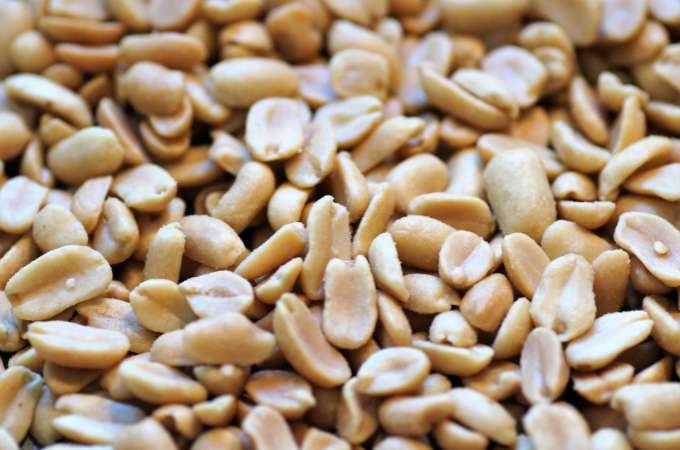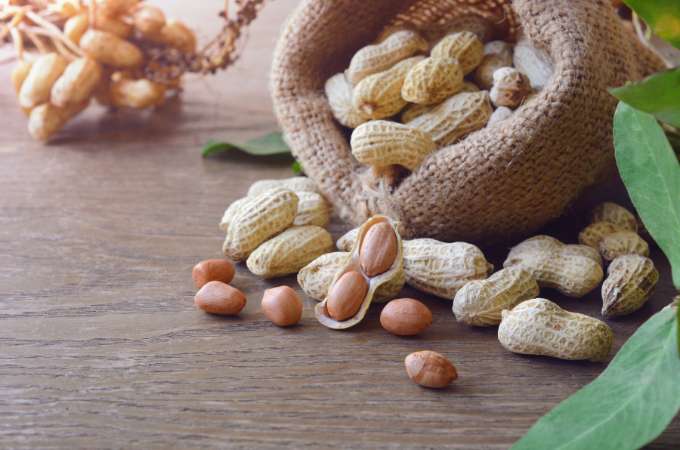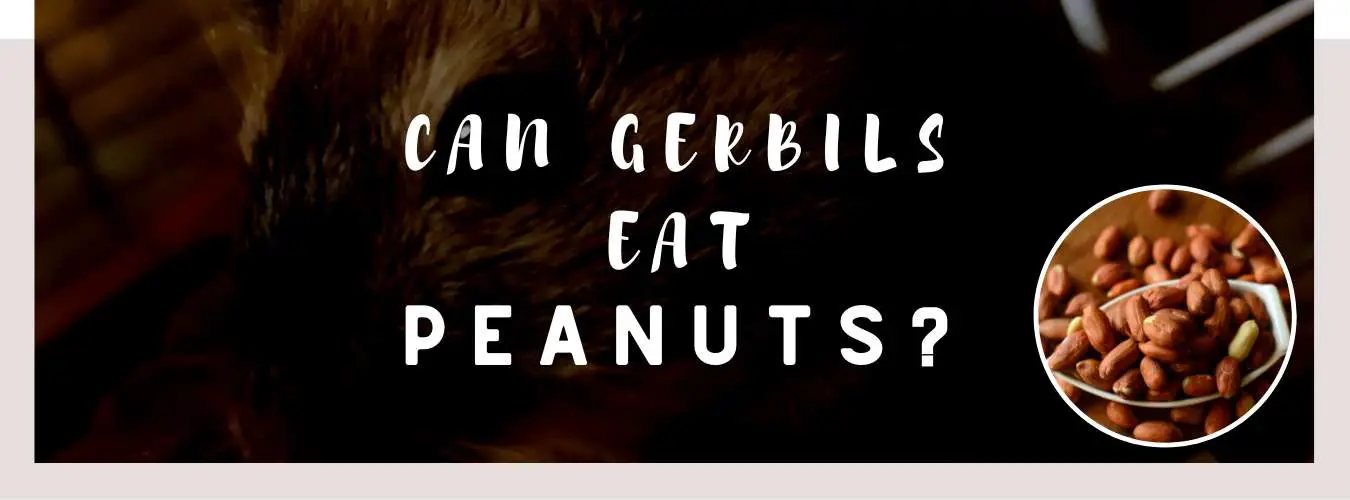
Gerbils are small, curious creatures often kept as pets, and like any pet, their diet is a crucial aspect of their care. A common question among gerbil owners is, “Can gerbils eat peanuts?” This article aims to provide a comprehensive answer, exploring the nutritional benefits, potential risks, and appropriate feeding guidelines for gerbils when it comes to peanuts.
Peanuts, though often associated with nuts, are actually legumes. They are rich in proteins, fats, and various vitamins and minerals which can be beneficial to gerbils in moderation. The high protein content in peanuts supports muscle and tissue growth, while the fats provide a concentrated source of energy.
However, peanuts also contain elements like phytic acid, which can inhibit the absorption of minerals, and aflatoxins, which can be harmful in high quantities. Hence, understanding the balance is key to safely including peanuts in a gerbil’s diet.
You might also like: What Can Gerbils Eat?

Benefits of Feeding Peanuts to Gerbils
In moderation, peanuts can be a healthy addition to a gerbil’s diet. They offer:
- Protein for Muscle Health: Essential for the growth and maintenance of muscle tissue.
- Healthy Fats: These are vital for energy and overall health.
- Vitamins and Minerals: Peanuts contain vitamins like biotin and minerals like magnesium, which contribute to a gerbil’s well-being.
Risks and Considerations
Despite their benefits, there are several risks associated with feeding peanuts to gerbils:
- Aflatoxins: Peanuts can contain these toxins, which are harmful to gerbils.
- Allergies: Some gerbils may be allergic to peanuts.
- Obesity and Digestive Issues: Due to their high-fat content, excessive consumption of peanuts can lead to obesity and digestive problems in gerbils.
Feeding Guidelines for Gerbils and Peanuts
When introducing peanuts to a gerbil’s diet, follow these guidelines:
- Moderation is Key: Offer peanuts sparingly, as a small part of the diet.
- Raw and Unsalted: Choose raw, unsalted peanuts to avoid harmful additives.
- Monitor Your Gerbil: Observe for any signs of allergies or digestive distress.
Special Considerations and Alternatives
If you’re concerned about the risks of peanuts, consider safer alternatives like pumpkin seeds or sunflower seeds, which are less likely to contain aflatoxins and are also rich in nutrients.
Understanding Peanuts in a Gerbil’s Diet
To expand on the topic of gerbils eating peanuts, it’s important to delve deeper into how peanuts fit into a gerbil’s overall dietary needs. Gerbils are naturally omnivorous, thriving on a diet that includes a variety of seeds, nuts, fruits, vegetables, and occasional insects. Peanuts, with their unique nutritional profile, can be a part of this varied diet but must be given with consideration to their specific attributes.
The Role of Protein and Fats in a Gerbil’s Diet
Gerbils require a balanced intake of proteins and fats for optimal health. Proteins are fundamental for tissue repair and growth, especially for young, developing gerbils. Fats, on the other hand, are a dense energy source and help in maintaining healthy skin and fur. Peanuts provide both these nutrients, making them a potentially beneficial treat. However, the high-fat content in peanuts also raises concerns about weight gain and related health issues in gerbils.
You might also like: Can Gerbils Eat Spinach?
Balancing Nutrients with Other Dietary Elements

While peanuts can contribute to the nutritional needs of gerbils, they should be balanced with other dietary elements. Gerbils also need a good amount of fiber for digestive health and carbohydrates for energy. Their diet should predominantly consist of specially formulated gerbil food that is designed to meet all their nutritional requirements. Peanuts can be an occasional supplement to this diet.
The Importance of Safe Feeding Practices
Introducing peanuts into a gerbil’s diet should be done cautiously. Start with a small piece to see how the gerbil reacts. Any signs of gastrointestinal distress or allergic reactions should be taken seriously. Furthermore, peanuts should be fresh and stored properly to prevent the growth of mold, which can produce harmful aflatoxins.
Recognizing Individual Differences Among Gerbils
Each gerbil is unique, and what works for one may not work for another. Some gerbils may have a preference for certain foods or may show sensitivity to foods like peanuts. Observing your gerbil’s reactions to different foods, including peanuts, is crucial for understanding what is best for their individual health.
Consulting with a Veterinarian
When in doubt, consulting with a veterinarian who has experience with small rodents can provide guidance tailored to your specific gerbil’s health and dietary needs. They can offer advice on portion sizes, frequency, and whether peanuts are a suitable treat for your pet.
The Environmental Impact of Peanuts
It’s also worth considering the environmental impact of peanuts. Sustainable farming practices and responsible sourcing are important factors that can influence the decision to include peanuts in your gerbil’s diet. Opting for organic, sustainably sourced peanuts can be a more environmentally friendly choice.
Final Thoughts
In conclusion, while peanuts can be a nutritious treat for gerbils, they should be given with care and in moderation. It’s important to consider each gerbil’s individual dietary needs and preferences, along with the environmental impact of peanut farming. By being mindful of these factors, you can make informed decisions about including peanuts in your gerbil’s diet, contributing to their health and well-being.









